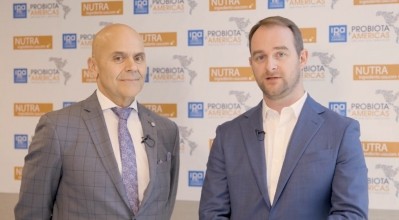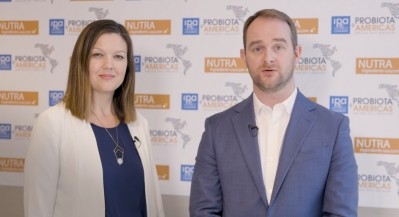Gut feeling? US tech institute files patent on prenatal bacteria-metabolite blend for autism

Writing in an international patent filing, researchers from the California Institute of Technology, also known as Caltech, detailed a set of compositions that could be used to influence the gut microbiome in infants identified as having autism spectrum disorders (ASD) or at risk of developing associated symptoms and conditions.
Targeting this group of neuro-developmental conditions, which had a broad range of manifestations, was “manifest” given the prevalence and evidence that diagnoses of autism were rising, the researcher said. Made from specific bacterias and metabolite precursors, the blends could be administered to pregnant mothers or directly to the infant prenatally or after birth.
The filing lists Caltech researchers Gil Sharon and Sarkis K. Mazmanian as the inventors. While the patent filing itself is not peer-reviewed, a search on PubMed (a database of published, peer-reviewed studies managed by the US National Library of Medicine National Institutes of Health) for their names returned hundreds of results.
Among the many results, Mazmanian and Sharon were co-authors in a May 2019 mice study published in Cell, in which they posited that the gut microbiota regulates behaviors in mice via neuroactive metabolites, suggesting that gut-brain connections contribute to the pathophysiology of ASD.
Read the full patent filing HERE.
It's in the gut...
Evidence from the researchers' earlier studies showed gut bacterial communities and metabolism differed between individuals diagnosed with autism spectrum disorder (ASD) and typically-developing individuals, according to the patent filing.
“The microbiome harbors a considerable genetic capacity, and changes in the microbiome result in altered metabolic profiles, impacting the availability and diversity of nutrients and microbial secondary metabolites,” the researchers wrote in the patent.
“Metabolomic analyses of serum and urine from ASD subjects have uncovered differences in various molecules compared to typically-developing controls, with many compounds that differ between the two groups being of microbial origin. Notably, amino-acid transport and degradation capabilities have been implicated to differ between typically-developed and ASD individuals, with amino acids serving as substrates for many potent neuroactive molecules.”
This, they said, was because certain bacteria populations were typically underrepresented in ASD subjects and these bacterias played an important role in the production or protection of certain metabolites associated with reduced risk and/or severity of ASD symptoms.
Through “experimental evidence”, the researchers outlined gut microbiome characteristics associated with increased risks of developing ASD after birth, including specific levels of taurine, cellobiose and glyceric acid, and showed that the microbiome regulated the processing of genes shown to be affected in the brains of subjects with ASD.
“These findings demonstrate mechanisms by which the microbiome contributes to behavioral and physiological features of ASD,” the researchers wrote.
Therapeutic potential?
So far, the researchers said bacterial-based interventions such as fecal transplants, antibiotics and probiotics had shown promise in some open-label human trials, and some gut microbes had also “demonstrated therapeutic potential” in animal models of ASD.
In the patent, the team reinforced that it was possible to therefore develop compositions for “reducing, ameliorating, and/or preventing ASD or symptoms of ASD in a subject after birth”, specifically repetitive behavior, hyperactivity, sociability difficulties, communication deficits and/or anxiety.
The compositions simply had to adjust levels of certain bacteria and metabolites present in the gut at a prenatal stage. The 'window' for these specific levels was based on levels found in healthy, non-ASD subjects, the researchers said.
The blends were made using bacteria from several groups: Bacteriodetes, Anaerofilum, Anaerotnmcus, Christensenella, Pseudoramibacter Eubacterium, Holdemania and Clostridiales along with a metabolite precursor, ideally a taurine and/or a 5-Aminovaleric acid precursor. They could be administered to the mother during pregnancy; administered directly to the prenatal subject; or to the infant after birth either alone or in combination with additional probiotics; dietary supplements or other therapeutic agents. Ideally, the researchers said the blend should be given prenatally when the blood-brain barrier of the prenatal infant was permeable to the metabolite precursor.
Importantly, the bacteria should be used in an “amount sufficient to establish a colony in the gut of a human subject when administered for microbiome transplant or probiotic treatment”, they said, and last for at least one to four weeks post-inoculation.
Identifying those 'at risk'
So, who should be given the bacteria-metabolite blends? Infants “at risk of developing ASD or a symptom of ASD”, the researchers said, could be identified through a fecal sample from the mother that had reduced levels of taurine or 5AV or an elevated level of 3-aminoisobutyric acid (3 AIBA), compared to a sample from a control mother of a non-ASD offspring.
Certain microbiota genes also indicated a presence and/or risk of ASD symptoms in the infant after birth, they said.









